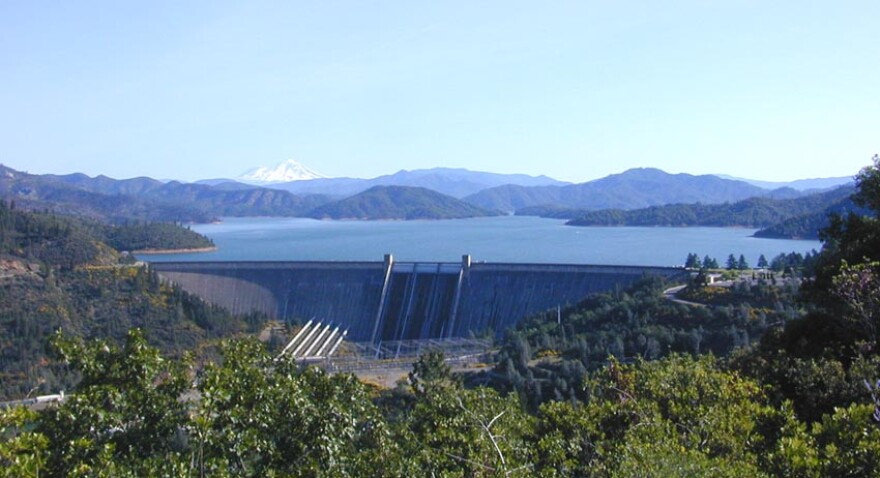The California Supreme Court on Wednesday temporarily halted efforts to raise the Shasta Dam by nearly 20 feet.
The Westlands Water District — the nation’s largest irrigation district — asked the state supreme court to overturn an earlier court decision that prohibited it from conducting a study on the possibility of raising the Shasta Dam.
If raised, the dam would collect more of the Sacramento River for irrigating down south.
The court rejected its request with an injunction, thereby temporarily halting the Westlands Water District’s ability to complete state-mandated environmental reviews until the conclusion of a trial set for next spring.
In May, California Attorney General Xavier Becerra filed a lawsuit to block the district from moving further with planning and construction. Becerra argued that preparing an environmental report would violate state law by moving forward with a project that would harm the McCloud River, a scenic and protected river.
The Westlands Water District is located in the San Joaquin Valley, where water is scarce and irrigation needs are high. It’s had its eyes on Shasta Lake water since the 1990s. The Bureau of Reclamation has also expressed interest in raising the dam, but it would only pay for part of the $1.4 billion cost.
In an email to JPR, a spokesman with the Bureau of Reclamation says the agency “continues to explore options with several non-Federal cost-share partners to implement the project and are also working with Congress to address storage needs throughout California.”
The Westlands Water District didn’t return JPR’s requests for comment.
John McManus of the Golden Gate Salmon Association celebrated the court’s decision.
“Attempting to move millions of acre-feet of water from the far north of the state — where it's needed to support natural resources, including the salmon runs that we fish on — and instead moving that down into the extremely dry Western San Joaquin Valley — which has little if any water of its own — is not what most people would consider a smart way to go about business,” McManus said.



